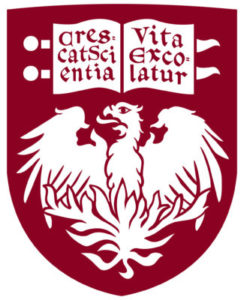We develop and apply genomic and computational methods to investigate the genetic architecture of complex traits, including disease risk and drug response. We are interested in what can be learned from DNA sequence, single-cell, and multiomics data about disease mechanism, therapeutic intervention, molecular evolution, and genome function. An ongoing project involves understanding gene regulation across tissues and cell types to gain insights into disease mechanisms and therapeutic targets. My collaborators and I develop concepts and tools for a new genomics of interorgan communication, investigating multiorgan cross talk in human health and disease via extracellular vesicles. We develop methods to investigate human metabolism, including metabolic gene deorphanization and metabolic compartmentalization. We utilize large-scale DNA biobank data linked to electronic health records, along with data science and computation (statistics, machine learning/AI) and multiomics (single-cell/single-nucleus and spatial transcriptomics, proteomics, metabolomics), to identify genes involved in human health and disease, to discover novel biomarkers, and to enable a comprehensive systems view of the disease phenome. Here is a short description of research interests.
 Dr. Eric R. Gamazon is broadly interested in genomics, computational biology, machine learning, and genomic medicine and leads the Functional Genomics & Precision Medicine lab. He is a tenured faculty member in the Vanderbilt University School of Medicine. He is a Principal Investigator of the DEFINE-T2D (Definition, Etiology, Function: Integration to Enhance Type 2 Diabetes treatment) Consortium, NIH/NIDDK’s flagship initiative on diabetes heterogeneity, and co-directs the Functional Multi-Omics of Diabetes Core of the Vanderbilt Diabetes Center. He has participated in the GTEx Consortium, the Global Biobank Meta-analysis Initiative, the Potocsnak Center for Undiagnosed and Rare Disorders, and a number of omics initiatives.
Dr. Eric R. Gamazon is broadly interested in genomics, computational biology, machine learning, and genomic medicine and leads the Functional Genomics & Precision Medicine lab. He is a tenured faculty member in the Vanderbilt University School of Medicine. He is a Principal Investigator of the DEFINE-T2D (Definition, Etiology, Function: Integration to Enhance Type 2 Diabetes treatment) Consortium, NIH/NIDDK’s flagship initiative on diabetes heterogeneity, and co-directs the Functional Multi-Omics of Diabetes Core of the Vanderbilt Diabetes Center. He has participated in the GTEx Consortium, the Global Biobank Meta-analysis Initiative, the Potocsnak Center for Undiagnosed and Rare Disorders, and a number of omics initiatives.
The lab is an interdisciplinary hybrid environment with expertise in computational genomics and molecular biology. The lab has been the research training ground for a Barry Goldwater Scholar, a Fulbright Scholar, a NARSAD Young Investigator Grant recipient, and a Ruth L. Kirschstein Individual Predoctoral Fellow.
Dr. Gamazon is a recipient of the inaugural Genomic Innovator Award from the National Institutes of Health (NIH). Here is a list of select publications and the latest news.
 He is now a Life Member (2019 — present) of Clare Hall, University of Cambridge, able to return any time to participate in the intellectual life of the college. Clare Hall is a graduate college devoted to research and scholarship and a culturally rich and intellectually exciting academic community. In 2018, he was elected to a Clare Hall Visiting Fellowship to advance his research and scholarship and mentor graduate students. He has held visiting posts in the Department of Medicine, the MRC Epidemiology Unit, and the MRC Biostatistics Unit of the University of Cambridge.
He is now a Life Member (2019 — present) of Clare Hall, University of Cambridge, able to return any time to participate in the intellectual life of the college. Clare Hall is a graduate college devoted to research and scholarship and a culturally rich and intellectually exciting academic community. In 2018, he was elected to a Clare Hall Visiting Fellowship to advance his research and scholarship and mentor graduate students. He has held visiting posts in the Department of Medicine, the MRC Epidemiology Unit, and the MRC Biostatistics Unit of the University of Cambridge.
He has been appointed a standing member of the NIH Biostatistical Methods and Research Design (BMRD) and Analytics and Statistics for Population Research Panel A (ASPA) study sections, which are responsible for analytic approaches (statistical, machine learning/AI) or “research designs to advance studies of human population health that emphasize biological or biomedical data.” He serves on the editorial boards of PLOS Computational Biology and Genome Medicine.
He serves as a co-chair of the Genetics Task Force of the Environmental influences on Child Health Outcomes consortium (2023 – Present). He also serves on the Steering Committee of the newly-launched DEFINE-T2D (Definition, Etiology, Function: Integration to Enhance Type 2 Diabetes treatment) Consortium (2024 – Present), as a co-PI of a NIDDK-funded research project (U01DK140952). He has served as co-chair of the GWAS Working Group of the GTEx Consortium.
 He has conducted research in genomics and translational science in the Section of Genetic Medicine of the University of Chicago and the Faculty of Medicine (AMC) of the University of Amsterdam. He was trained in Mathematics and Statistical Genetics.
He has conducted research in genomics and translational science in the Section of Genetic Medicine of the University of Chicago and the Faculty of Medicine (AMC) of the University of Amsterdam. He was trained in Mathematics and Statistical Genetics.